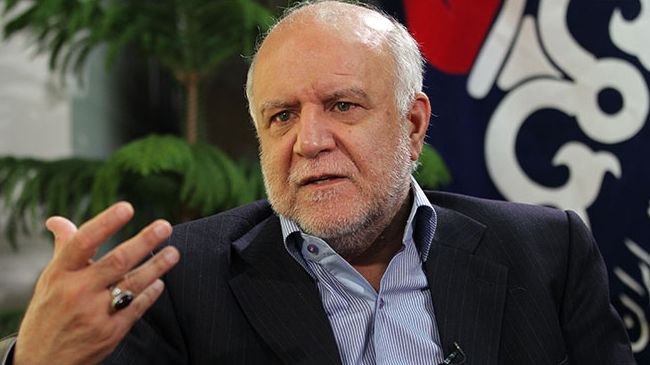
Iran’s Minister of Petroleum Bijan Zanganeh
Iran has repeated its assertion that it’s unwilling to accept production cuts so long as its market share remains below where it was before the embargo imposed by most importers on Iranian oil in 2011.
“… we expect our right to revive our lost share in the oil market will be taken into consideration,” Iran’s Minister of Petroleum Bijan Zanganeh was quoted as saying on 26 August by Shana newsagency. “Revival of Iran’s lost share in the oil market is the national demand of Iranian nation.”
Zanganeh was speaking at a press conference at Pars Energy Special Economic Zone. He confirmed he would attend an unscheduled OPEC meeting on the sidelines of the International Energy Forum in Algeria on 28-29 September.
There have been persistent calls from some OPEC and non-OPEC states for action to constrain oil output since OPEC started to pursue a market-share strategy in the summer of 2014. Saudi Arabia has said it will not consider output cuts unless all OPEC states agreed to trim production. Iran has consistently rejected production restraint until its production as a share of of oil markets was restored to pre-sanctions levels.
“Our expectation is that those turning market unstable, should assume highest and main responsibility to restore stability in the market,” Zanganeh was quoted as saying.
He did not refer to Saudi Arabia by name, but Iran has charged Saudi Arabia as being the main factor behind the slump in oil prices. Saudi Arabia produced almost 10.7m b/d of crude oil in July. Energy Minister Khalid al-Falih said earlier this week that output was continuing around July levels in August.
Al-Falih said that “intervention” in oil markets was not necesssary.
World oil prices rose by around $8 a barrel between the stat of August and 19 August, mainly on speculation that OPEC forge a production deal during its Algiers meeting. It has fallen by more than $4 a barrel since then as expectations of a deal faded.
For full coverage of Middle East business, see MEED.